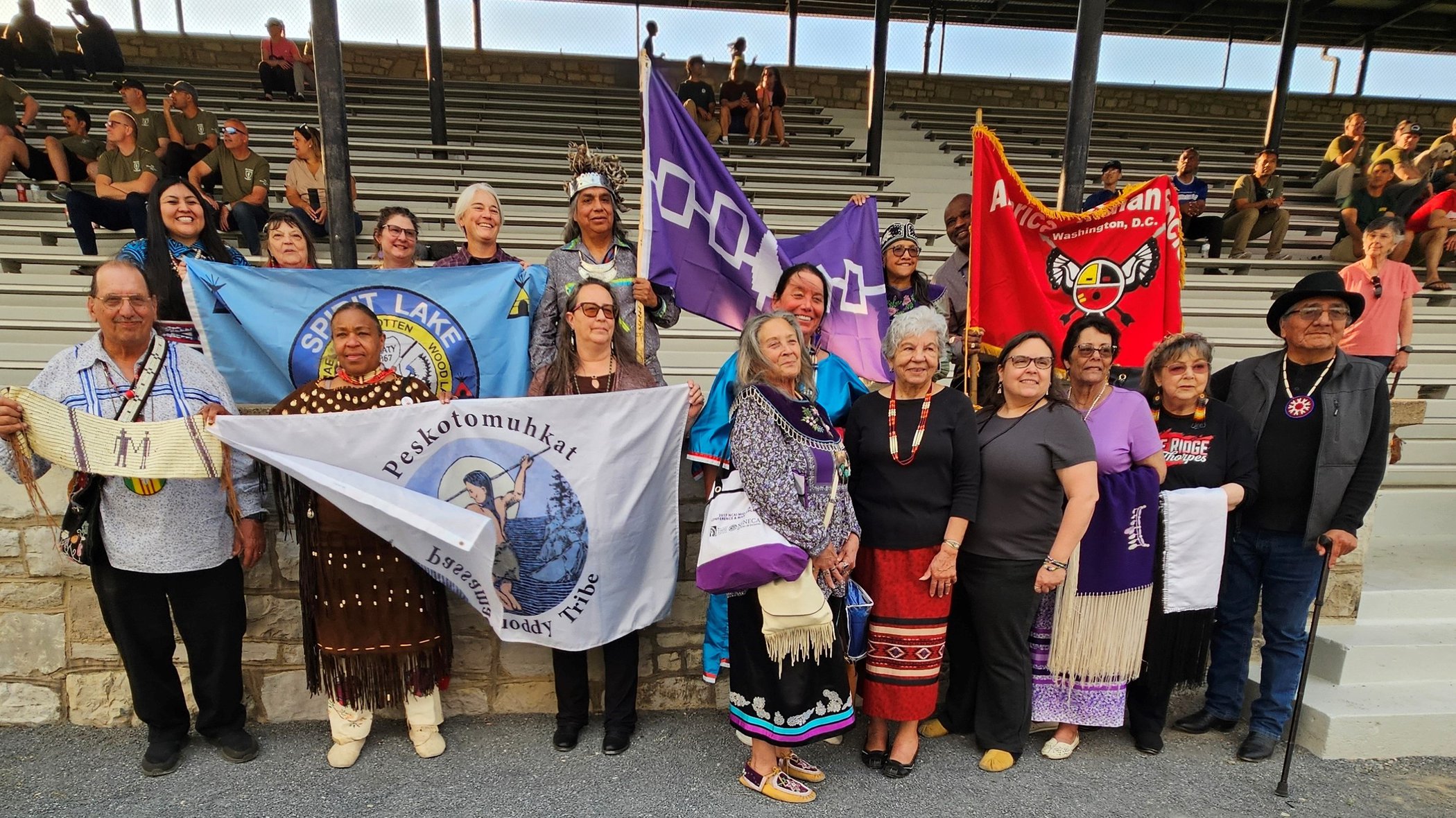
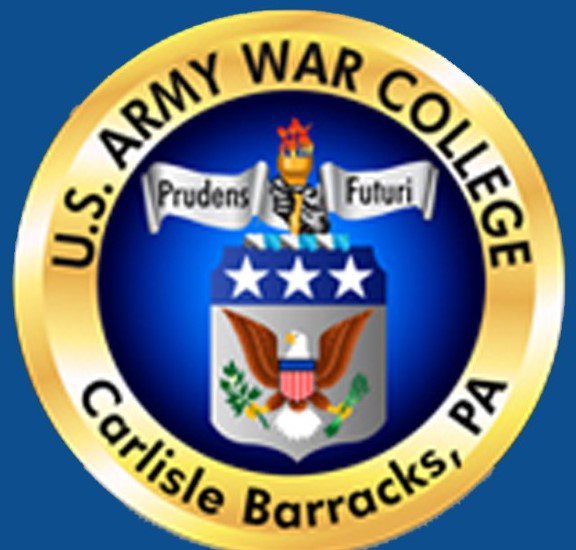
CARLISLE, Pa. – An 11-year tradition that celebrated the painful but proud Native American heritage of the U.S. Army Barracks in Carlisle, Pa., ended in April due to President Donald Trump’s executive order forbidding diversity, equity and inclusion (DEI) programs at federal facilities. But a nearby United Methodist church may have begun a new tradition and a new friendship by collaborating with Native American groups and two United Methodist conference committees on Native American Ministries.
Since 1979, the U.S. Army War College, housed at the 280-year-old Carlisle Barracks, has hosted the annual Jim Thorpe Sports Days tournament, featuring friendly athletic competitions among training staff at various military war colleges. And since 2013, the spring event, which honors one of America’s greatest 20th century sports heroes, has opened with a special address by a decorated Native American veteran and public figure invited by Native American groups, working in partnership with United Methodist-related Dickinson College in Carlisle.
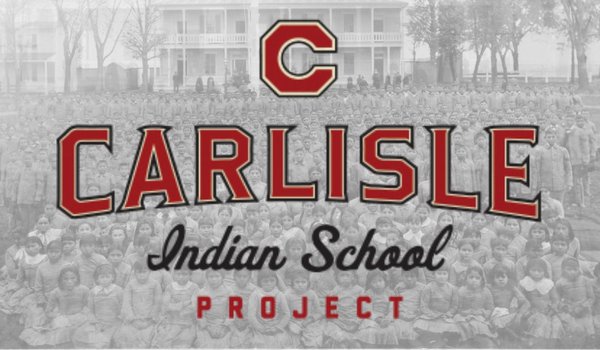
But those three groups— the Carlisle Indian School Project, the Circle Legacy Center, based in Lancaster, Pa., and the American Indian Society of Washington, D.C—were sorely disappointed this year when the U.S. Department of Defense decision to end DEI practices led to cancelation of the scheduled opening address of the April 24 tournament. The groups had invited Vietnam War naval veteran Bryan Brewer, Sr., of the Oglala Sioux Indian Reservation in Pine Ridge, South Dakota. An American Legion Post Commander and local Veterans Association president, Brewer is a former teacher, principal and coach, as well as a tribal president and founding director of the Lakota Nation Invitational, described as “the largest and most successful sporting event in South Dakota.”
When Native American participation in the opening ceremonies was abruptly canceled, Carlisle United Methodist Church stepped in to save the day, thanks to an appeal by the Susquehanna and Eastern Pennsylvania conference committees on Native American Ministry (CONAMs). The church agreed to host an alternative event for the three Native American groups, creating a new relationship and proving the popular adage that when one door closes, God often opens another.
Barracks once boarded Native children taken from their families
The Carlisle Barracks is the site where the U.S. Department of the Interior housed, from 1879 to 1918, the first of 526 off-reservation, government-funded and often church-run, U.S. boarding schools. They were created to separate and forcibly assimilate indigenous children into Anglo-American culture. Over 7,800 children from 140 Native American tribes were taken from their families to live, learn and labor at the Carlisle school. Many lost close ties to their communities and much of their own cultural identification, language and heritage.
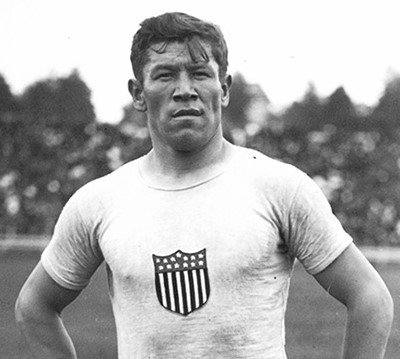
Jim Thorpe, of the Sac and Fox nation, was one of those children. A gifted athlete, he became in 1912 the first Native American to win an Olympic gold medal and the only U.S. Olympian ever to win gold medals in both the decathlon and pentathlon events. The revered, multi-sport athlete also helped establish and was president of the first American football league, which helped grow its popularity and led to the formation of the National Football League.
Besides the annual Jim Thorpe Sports Days tournament, what remains of the Carlisle Indian Industrial School memory on the campus includes several facility and street names, a modest historical exhibit, and rows of tiny white headstones marking the graves of children who died there—many of whom were reportedly victims of abuse.
Yet, while it was the source of much generational trauma and loss of indigenous culture, the site still holds sacred significance to many Native Americans. That includes many who attend the yearly tournament and some who return on Memorial Day to decorate the children’s graves.
In 2024, the Carlisle Federal Indian Boarding School was designated a National Monument. And the Carlisle Indian School Digital Resource Center, established by United Methodist-related Dickinson College, is collecting and digitizing a growing, online, publicly accessible collection of diverse materials that together begin to tell the story of the school and many of its students.
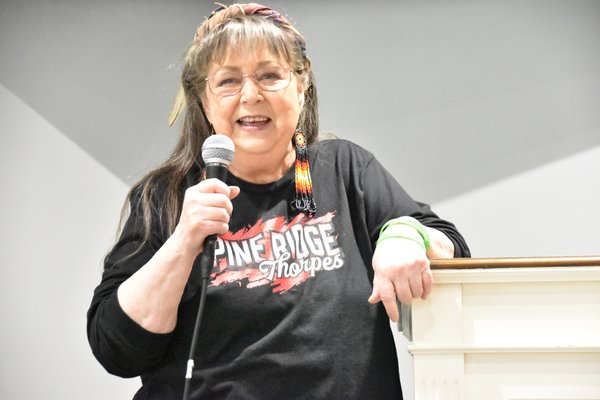
But featuring a Native American speaker to open Jim Thorpe Sports Days “helps and encourages us to understand together the complicated history of the Carlisle Barracks,” said Sandi Cianciulli, a leader of the Carlisle Indian School Project and the Circle Legacy Center. She also co-chairs the Eastern Pennsylvania Conference Committee on Native American Ministry (CONAM). “It embodies the ongoing spirit of reconciliation between Native and non-Native people.”
A descendant of students buried at the Carlisle Barracks, Cianciulli (Oglala-Sioux) appreciates the years of collaboration with the War College staff, although developing their partnership has been challenging.
“We have been touched by the diligent efforts of Army leadership to further embrace the deeper history of the Carlisle Barracks by forming a Memorialization Committee,” she explained. That committee researches and uses historical data to rename facilities and streets and create exhibits “to reflect a more complete and accurate history of this historic site.”
Nonetheless, the new DoD rules forced the Army War College’s Commandant, Major General David Hill, to cancel this year’s speech by Bryan Brewer and to give the opening address himself. He recalled Jim Thorpe’s athletic prowess and exemplary character of discipline, sportsmanship and team leadership in his brief remarks.
Yet, still wanting to continue the shared Native American focus of the day’s celebration of Jim Thorpe, Cianciulli asked Susquehanna Conference CONAM leaders and Carlisle UMC for help in creating an alternative event in the community. The church promptly invited both conference CONAMs to plan and co-host a reception and presentation there, April 24, at 2 p.m., prior to the tournament’s opening ceremony.
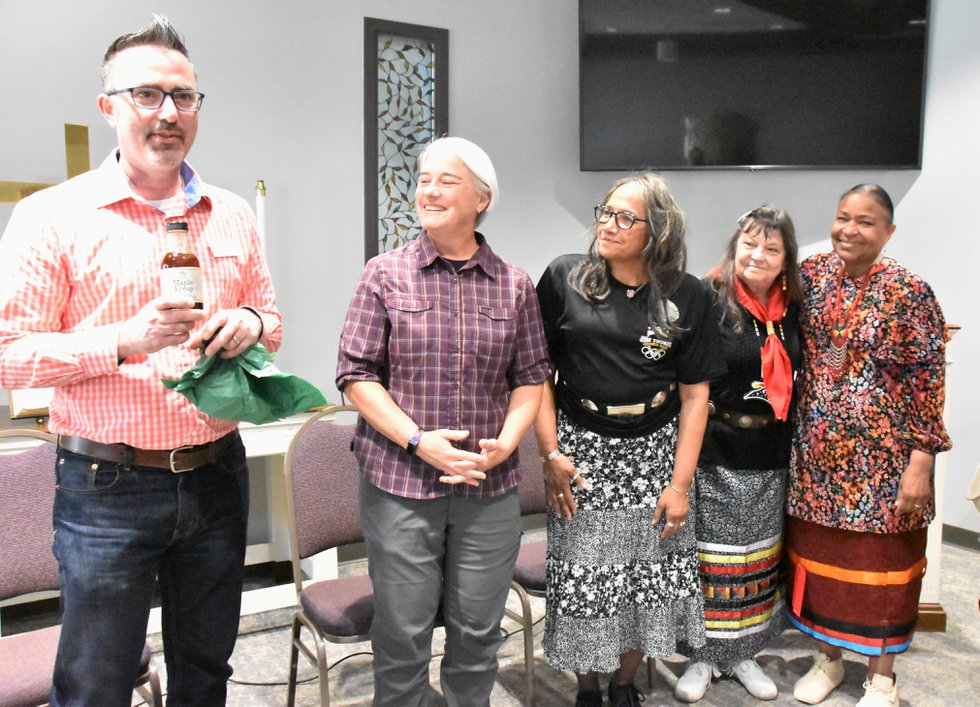
A passion for welcoming all people
“This church has a passion for welcoming all people and being here for the community. So, we immediately said yes,” said the Rev. Jake Waybright, the church’s self-described “vision pastor.” Carlisle UMC, established from a 2020 merger of three congregations, has not intentionally connected with Native American groups in the past or learned much about the Carlisle boarding school history, he admitted. “But this gives us a great opportunity to learn that story and make those connections now,” he said.
“As we struggle to redefine our place in the annual celebration of this famous Native American athlete,” said Cianciulli, “it is our great honor to be so welcomed by this church in the Carlisle community. They have been a missing component of our involvement here for the last 11 years.”
The Rev. Barbara Lee, an Eastern Pennsylvania Conference pastor and CONAM member who helped arrange and attended the reception, grew up in one of those merged churches.
“We knew that the Army Barracks had once housed a school for Native children, and we thought it was a nice thing” she recalled. “But we didn’t know the full story of what happened to the children there.”
Carlisle UMC is actively involved in social justice, led by its Believers in Action ministry, which sponsors activities focused on ending racism and promoting LGBTQ inclusion and other causes.
“This is our first direct engagement with Native American people and concerns,” said group co-leader Cheryl Hale during the reception. “But it likely won’t be our last.”
The group of about 20 members plans to participate in the Susquehanna Conference’s annual “Pilgrimage of Pain and Hope” anti-racism tour when it comes to Carlisle in late summer 2025, Hale said. The Carlisle Indian School history will be highlighted, along with the replacement of a local African American cemetery with a park, and several Underground Railroad sites in the area.
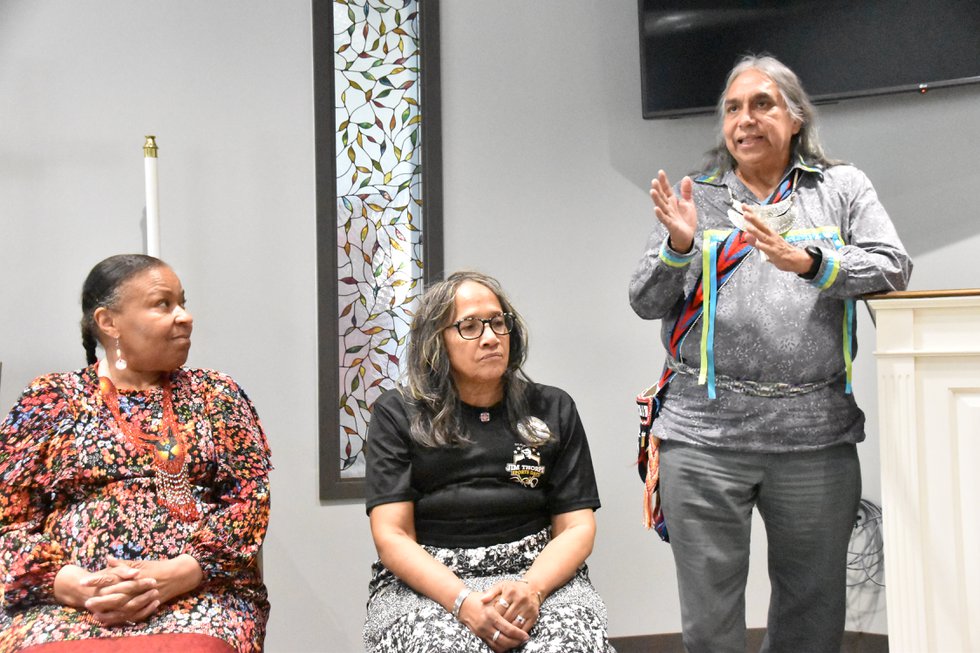
While Bryan Brewer was unable to attend the church’s reception and program, about 40 people filled the small chapel, including members of both conference CONAMs, the Circle Legacy Center (CLC) and the American Indian Society of Washington D.C. (AISDC). After hearing greetings by letter from Susquehanna Conference Bishop Hector Burgos-Núñez and Eastern PA Conference Bishop Cynthia Moore-Koikoi, attendees then heard remarks from CLC and AISDC leaders, along with Native American flute and drum music.
“You are all my relations,” said A’lice Myers Hall (Lenape), AISDC president, who recognized the Susquehannock, Shawnee and Lenape indigenous tribes of the Carlisle area. “At the American Indian Society in D.C., (organized in 1966) we are people of many cultures from among the 574 recognized tribes on Turtle Island. And we welcome everyone to come learn about us, as we try to learn about you.”
CLC president MaryAnn Robins (Onondaga) emphasized the importance of connections among indigenous peoples who befriend, teach and support one another, especially those who relocate and seek Native communities where they can freely engage in music, dance and other forms of cultural self-expression.
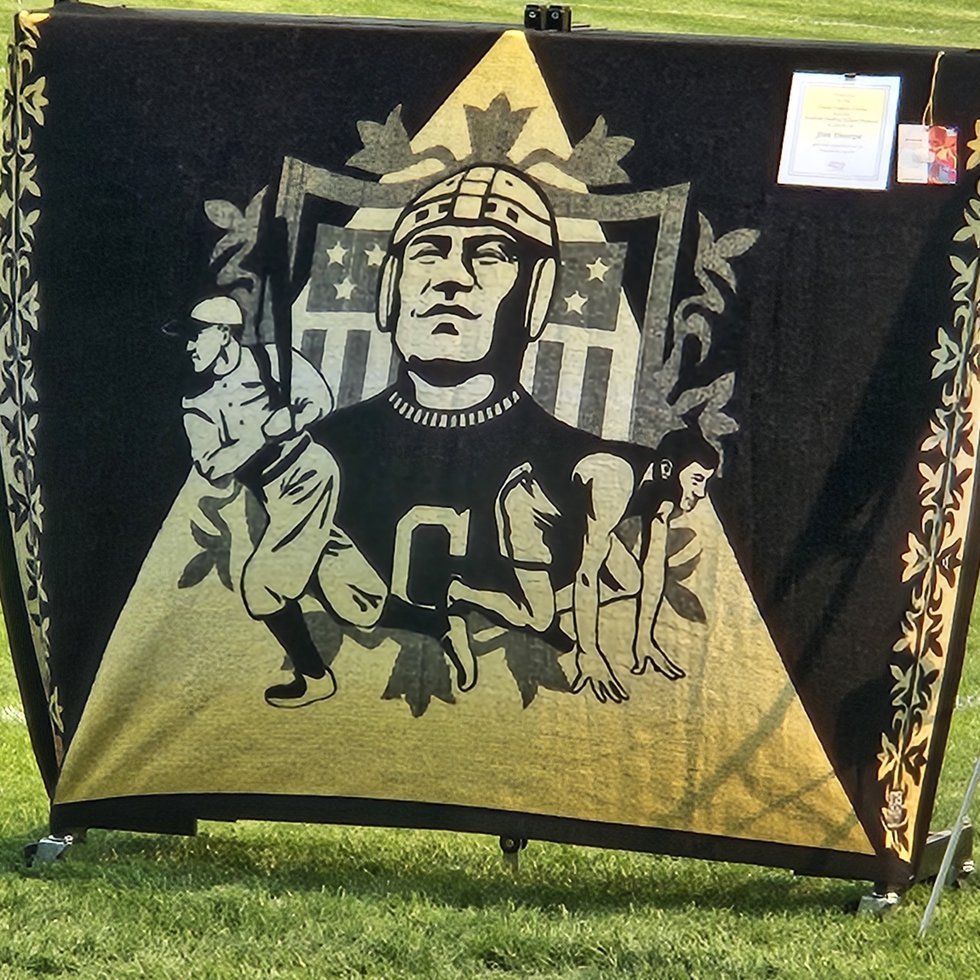
After the reception and remarks, about 30 guests attended the grand opening of the Jim Thorpe Sports Days tournament at the nearby Carlisle Barracks. They gathered among other spectators in the grandstand at Frank Mt. Pleasant Field (formerly “Indian Field”). Some wore colorful tribal regalia to honor their ancestors, and several displayed banners.
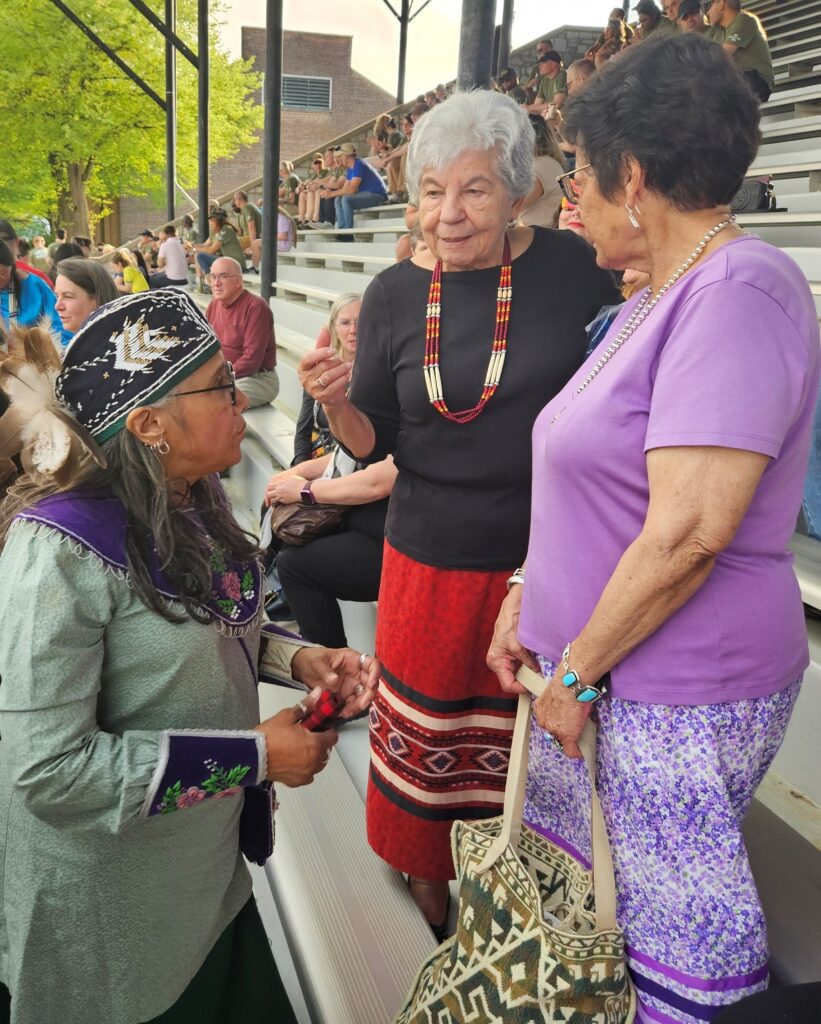
(From left) Maryann Robins. of the Circle Legacy Center, chats with Ruby Olson and Hanna Jacobs, of the Susquehanna Conference CONAM, after the opening ceremonies and relay race of the Jim Thorpe Sports Days. Photo by John W. Coleman
All stood for the national anthem, as a military honor guard held flags of freedom. Then they watched the grand parade of competing teams, listened to the commandant’s speech and the chaplain’s prayer, and cheered teams competing in the opening relay race.
As runners lunged forward to pass batons to their teammates, Cianciulli and her peers could celebrate that the two conference CONAMs and their new friends at Carlisle UMC picked up the dropped baton of their canceled event and enabled them to continue honoring their beloved Carlisle ancestor together.
The efforts of many conference committees on Native American Ministry, like Eastern Pennsylvania’s and Susquehanna’s, are funded by one-half of the annual Native American Ministry Sunday offering, which United Methodist churches receive on the Third Sunday of Easter. Churches may choose to celebrate and honor the gifts and contributions of Native Americans at another time. Find resources at https://www.resourceumc.org/en/umc-resources/umcgiving/special-sundays/native-american-ministries-pastor-and-leader-kit.
John W. Coleman serves as editor-at-large for United Methodist Insight. This article is republished with permission from the United Methodist Insight website.
